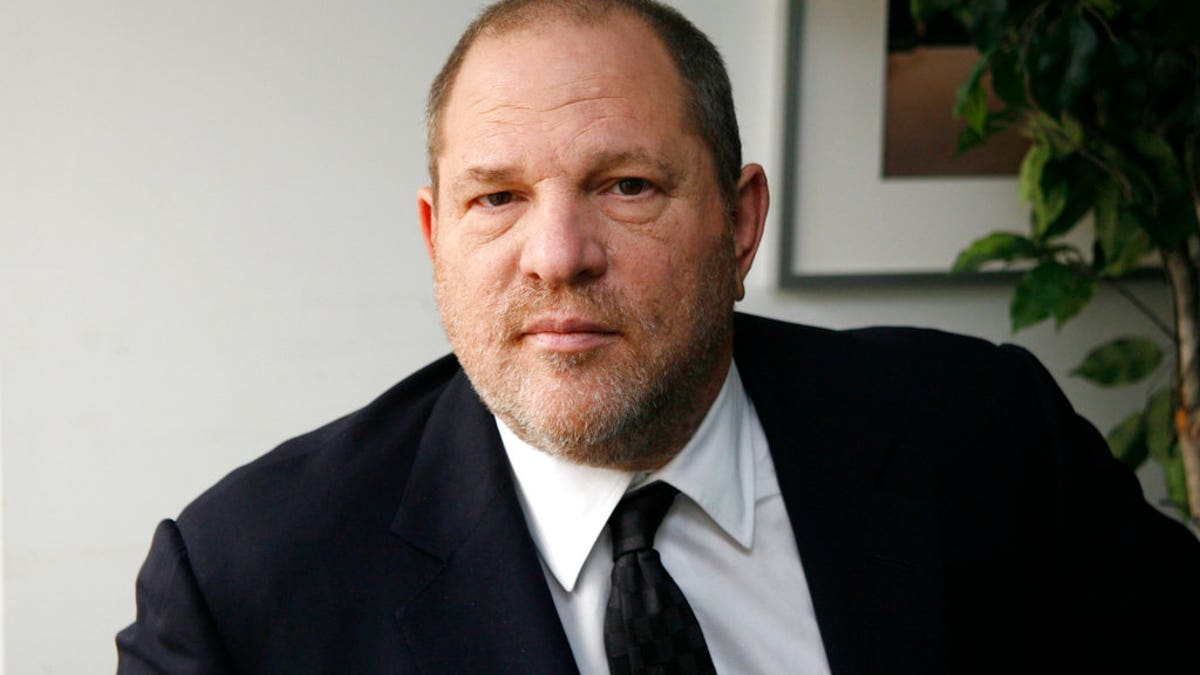
FILE - In this Nov. 23, 2011 file photo, producer Harvey Weinstein, co-chairman of The Weinstein Company, appears during an interview in New York. Weinstein faces multiple allegations of sexual abuse and harassment from some of the biggest names in Hollywood. (AP Photo/John Carucci, File) (AP)
Yet another anti-male group has emerged, this time in Washington D.C. It’s called Rethink Masculinity, and it is billed as a community where “people identifying as men” learn how social constructs of masculinity are harmful and then subsequently work to construct “healthier” ways to be men. The program joins a host of other like-minded initiatives, most of which are on college campuses—such as the Men’s Project at the University of Wisconsin, Masculinity 101 at Brown, and the Duke Men’s Project.
The goal of these programs is always the same: “to help men examine their own biases and behaviors in order to cut down on misogyny and gender-based violence,” writes Olivia Campbell at New York magazine.
Adds Campbell, “There’s no doubt the problems these classes aim to tackle are pervasive ones — a reality that’s been made especially, painfully clear in recent days and weeks, as the Harvey Weinstein revelations have pushed discussions of sexual assault and harassment to the forefront. But can a class really be enough to chip away at something so deeply entrenched?”
Probably not, notes Eric Mankowski, associate chair of the psychology department at Portland State University. “A single class is unlikely to undo years of socialization in toxic masculinity.”
Years of socialization in toxic masculinity. Right, because the recent events regarding men behaving badly, whether in the media, in Hollywood, or even on college campuses, couldn’t possibly be anything but that.
All the recent news about powerful men abusing their power is real. But our focus is misplaced. Of course such men are disgusting. Of course they’re wrong and should be called out. But that doesn’t mean masculinity is the problem. It means power is.
It couldn’t possibly be that the stories about which we’re far too privy represent the basest of the base—individual human beings who lack basic decency and character and who do not represent an entire sex. It couldn’t be that we know too much for our own good and at the same time know nothing specific about the events themselves. It couldn’t be that women on campus or in Hollywood or in the media are culpable in any way—because we all know women are always innocent and men, well, are not. It couldn’t be that those bastions of left-wing groupthink in all three of these arenas are, by their very nature, corrupt.
Because out here in the middle of the country, that vast area between the two coasts where most Americans live, healthy masculinity abounds. Out here in the middle of the country, where regular people live regular lives, masculine men are in fact quite lovely. They love and respect women. They love their country and their families. They’re good husbands and fathers who would never dream of forsaking it all for a romp in the hay.
And the women? They love and respect men, too—as they are, not as they “should” be. They also know how to take care of themselves and say no to bad behavior. They don’t put up with nonsense from men unless they want the nonsense. And if they do, they own it. Because they know women are as flawed as men.
That is not to suggest nothing bad happens between New York and California. It is only to say that “toxic masculinity” isn’t the problem. Greed, power and corruption—which dominate on the Coasts—is the problem. When you throw those elements into the mix, both sexes get into trouble. Women in high positions of power can be just as ruthless as men in power. The only reason we don’t hear about them is because there are far fewer women in power.
It’s time to call a spade a spade. All the recent news about powerful men abusing their power is real. But our focus is misplaced. Of course such men are disgusting. Of course they’re wrong and should be called out. But that doesn’t mean masculinity is the problem.
It means power is.
So what’s the answer? Either stay away from environments that are clearly corrupt and opt for a clean, simple life instead. Or go for it and know what you’re getting into. And the second you smell something untoward, which you will, do what Angelina Jolie did: “I had a bad experience with Harvey Weinstein in my youth, and as a result, chose never to work with him again and warn others when they did.”
In other words, you can be smart or you can be desperate. If you’re desperate for power, you will inevitably become part of the madness. If you’re smart and play your cards right, as Mayim Bialik explains in this essay, you may—may—rise above the fray.
In a perfect world, power wouldn’t cause people to behave like animals instead of like humans. But we don’t live in such a world. And here’s the most important part: none of us can change this fact. It’s human nature at its ugliest, and we can’t control it.
You can spend your life trying if you like.
But I wouldn’t recommend it.




















